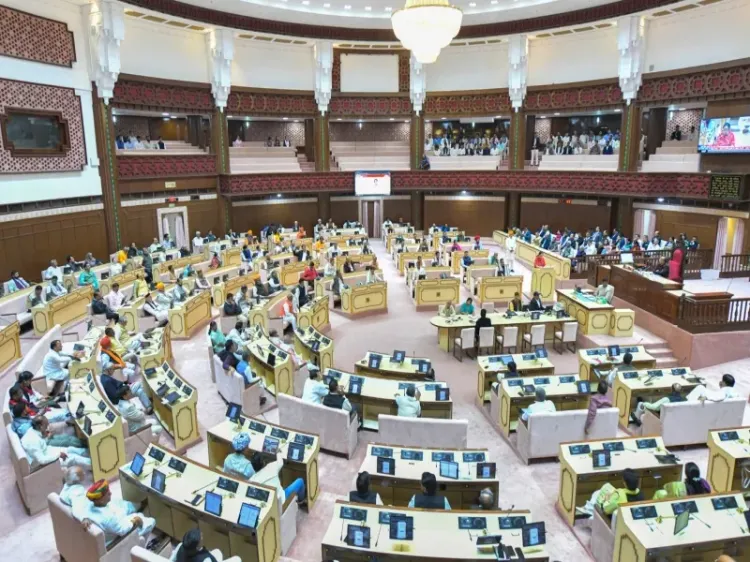Was the Fisheries Amendment Bill Passed in Rajasthan Assembly Amid Uproar?

Synopsis
Key Takeaways
- The Fisheries Amendment Bill was passed with significant opposition.
- Increased fines for illegal fishing could impact local fishermen.
- The ongoing protests highlight broader concerns about law and order in Rajasthan.
- Only a few legislators participated in the debate.
- Political tensions in the assembly continue to escalate.
Jaipur, Sep 8 (NationPress) The Rajasthan Assembly successfully passed the Fisheries Amendment Bill on Monday, despite a persistent uproar from Congress MLAs concerning the deteriorating law and order situation.
This new legislation imposes significantly higher penalties for illegal fishing—the fine for a first-time violation has surged from Rs 500 to Rs 25,000, while repeat offenders will face fines increased from Rs 1,000 to Rs 50,000.
In spite of the tumultuous protests, only BSP legislator Manoj Nyangli and Independent MLA Ravindra Singh Bhati took part in the debate supporting the bill.
Bhati raised concerns about the inflated fines, arguing that poor fishermen might inadvertently break rules, and such steep penalties would create an undue burden.
The uproar initiated during Zero Hour when Leader of Opposition Tika Ram Jully called for a discussion on law and order. Congress MLAs occupied the Well, shouting slogans and demanding action.
Speaker Vasudev Devnani mentioned that the issue would be addressed in the BAC meeting, but the chanting persisted.
Earlier in the day, outside the Assembly, Congress MLAs protested with posters, chanting slogans like “Bhajan Sarkar Hosh Me Aao” and “Sarkari zameenon Ki Chori Band Karo”.
During Question Hour, the Speaker reprimanded Parliamentary Affairs Minister Jogaram Patel while he responded to Congress MLA Sohanlal Nayak regarding delays in consolidation notifications.
Patel suggested that the Leader of Opposition should “keep listening”, which led the Speaker to caution him to address the Chair instead of individual MLAs.
Patel asserted he was “answering here only”, further aggravating the Speaker.
As the chaos intensified during the discussion on the Fisheries Bill, Patel accused the Congress of sowing discord, stating: “Eight crore people are watching the behavior of Congress. They create a ruckus.”
He then chanted slogans of “Congress Hai-Hai”. With the uproar showing no signs of abating, the Speaker adjourned the session first until 3 p.m. and later until 3.30 p.m.
This incident marks the latest in a series of protests by Congress MLAs during the ongoing monsoon session, which has seen almost daily disruptions concerning issues from law and order to land-related allegations against the Rajasthan government led by Bhajan Lal Sharma.










